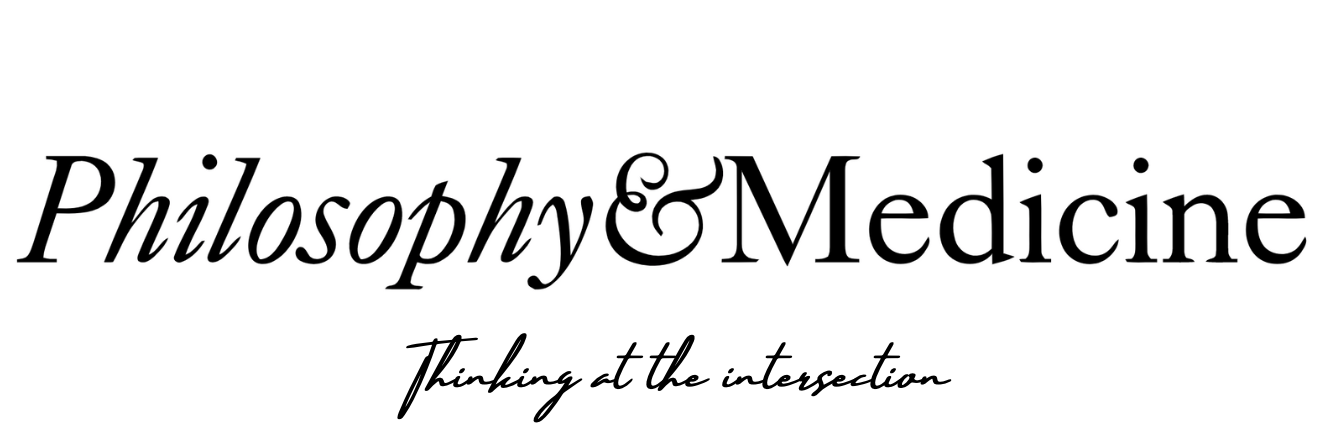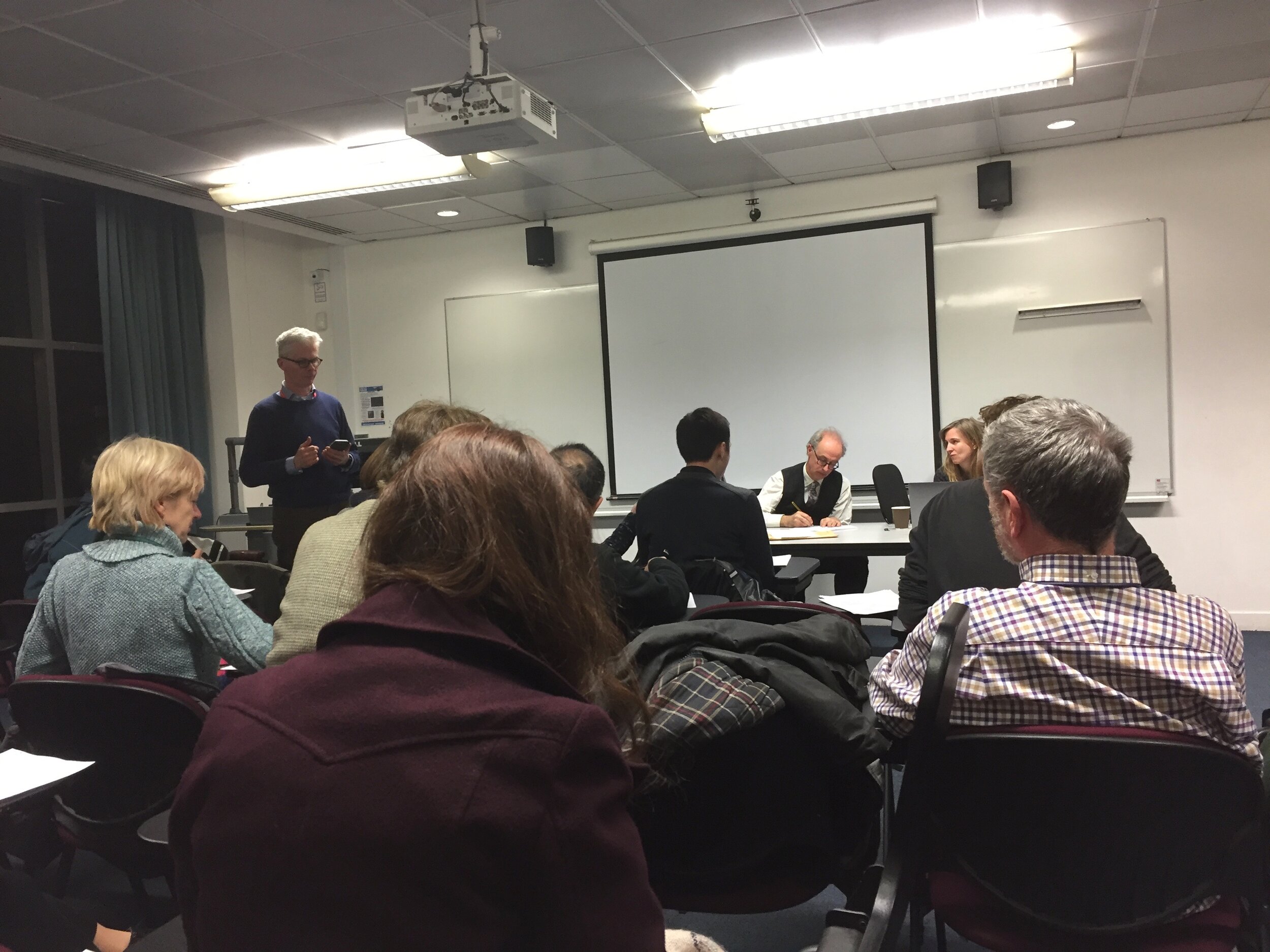
Upcoming Events
You can find all upcoming events, including registration information, listed on this page. No events listed? That means we have none upcoming at this time. To be the first to hear about new events, join our newsletter.

Sowerby Project 10 Year Anniversary Public Lecture: Joanna Moncrieff
We are delighted to be welcoming renowned British Psychiatrist Joanna Moncrieff at King’s College London on the 3rd June where she will be giving the Sowerby Project 10-year Anniversary Lecture. This lecture, preceded by a two-day international academic conference, celebrates 10 years of thinking at the intersection of Philosophy & Medicine at King’s College London. The lecture, followed by a Celebratory Drinks Reception on Bush House Terrrace, with views of London, is open to the public and free to attend.
Professor Moncrieff will speak on Changing our minds: how we have been misled about the nature of depression and mental disorder. The abstract follows:
In the 1980s, people thought depression was a reaction to life events, such as unemployment and divorce. They thought that taking pills for emotional problems only numbed the feelings and wasn’t a good idea. By the 2000s, however, most people viewed depression as consisting of a brain condition that was specifically targeted by antidepressants. I tell the story of how people’s minds were deliberately changed by pharmaceutical industry campaigns, supported by the medical profession, and motivated by profit and professional concerns rather than science. I look at the practical consequences of this situation (the explosion of use of antidepressants) and explore its effects on how we understand the nature of mental disorders, emotions and what it is to be human.
Place: King’s College London, Lecture Theatre 1, Bush House, Strand
Date: 3rd June 2025
Time: 16:00-18:00 followed by a reception
Registration: you can register for the lecture here: https://buytickets.at/sowerbyproject/1706396
About the Sowerby Project
The Sowerby Project is a joint venture between King’s Department of Philosophy, Faculty of Life Sciences and Medicine, and The Florence Nightingale Faculty of Nursing and Midwifery. Generously funded by the Peter Sowerby Foundation It works to promote all teaching, research and public engagement at the intersection of philosophy & medicine. This includes introducing philosophy into the curricula that train clinicians, hosting a range of public lectures and research activities to encourage dialogue and collaborative research across these disciplines, and training the next generations of teachers and researchers in this field.
We look forward to seeing you in London!
For questions: PhilAndMed@kcl.ac.uk

International Philosophy of Medicine Roundtable & Peter Sowerby Philosophy & Medicine Anniversary lecture
The International Philosophy of Medicine Roundtable (IPMR) is an open group of philosophers, clinicians, epidemiologists, social scientists, statisticians, bioethicists, and anyone else with an interest in epistemological and ontological issues connected with medicine. Its goal is to promote study of these philosophical issues by connecting people with an interest in them and organizing forums for the exchange of ideas. Bioethics, philosophy of psychiatry and the history of medicine are related disciplines with established national and international organizations.
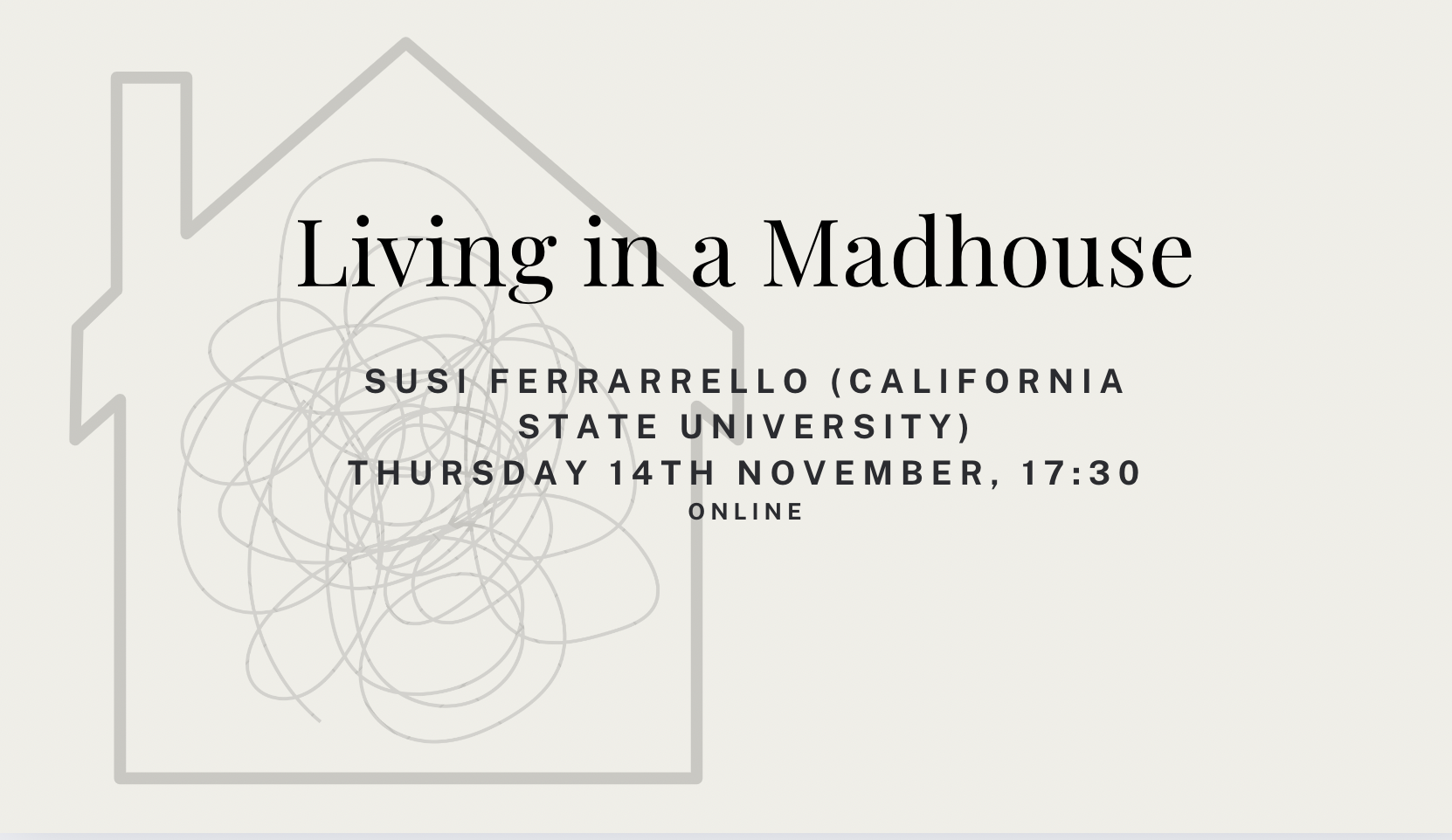
Susi Ferrarello "Living in a Madhouse"
This event is part of our ongoing series "Witnessing Mental Illness Through Philosophy"
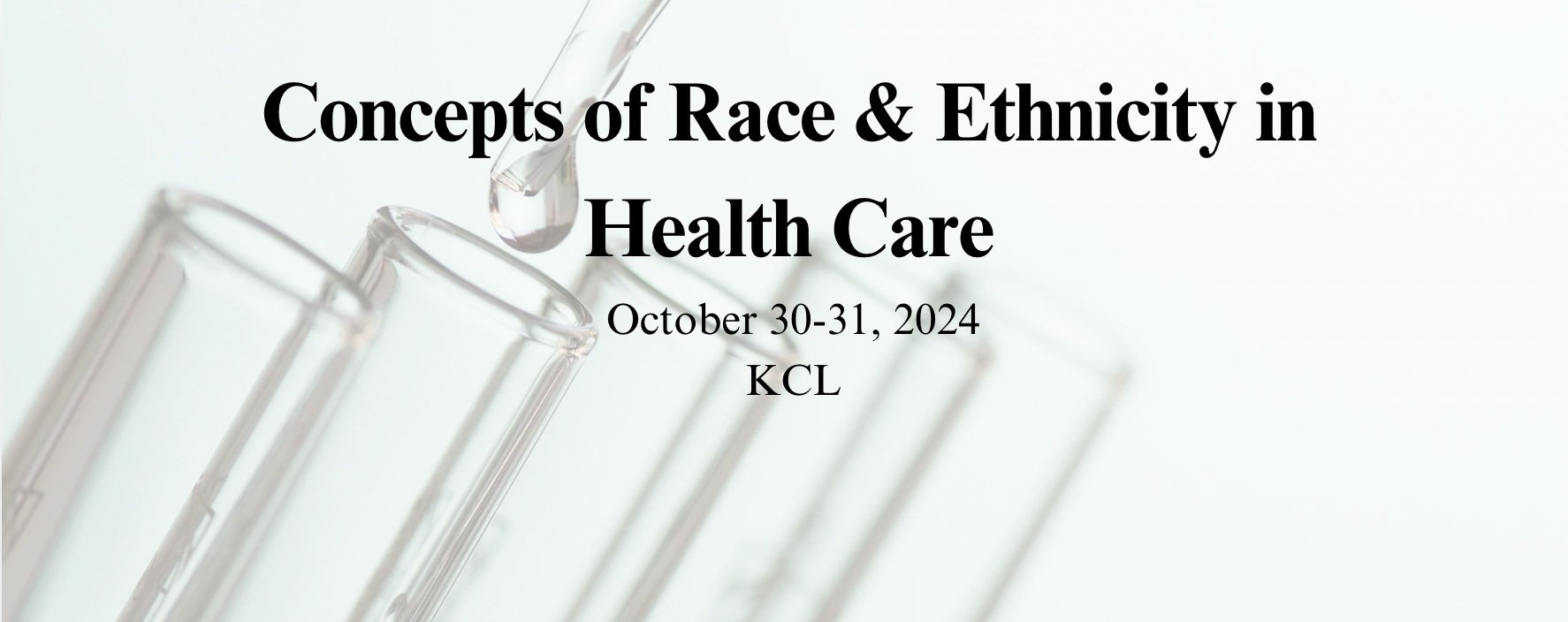
Concepts of Race & Ethnicity in Health Care
This years Annual Sowerby Workshop and Lecture will be on the theme of "Concepts of Race & Ethnicity in Health Care".
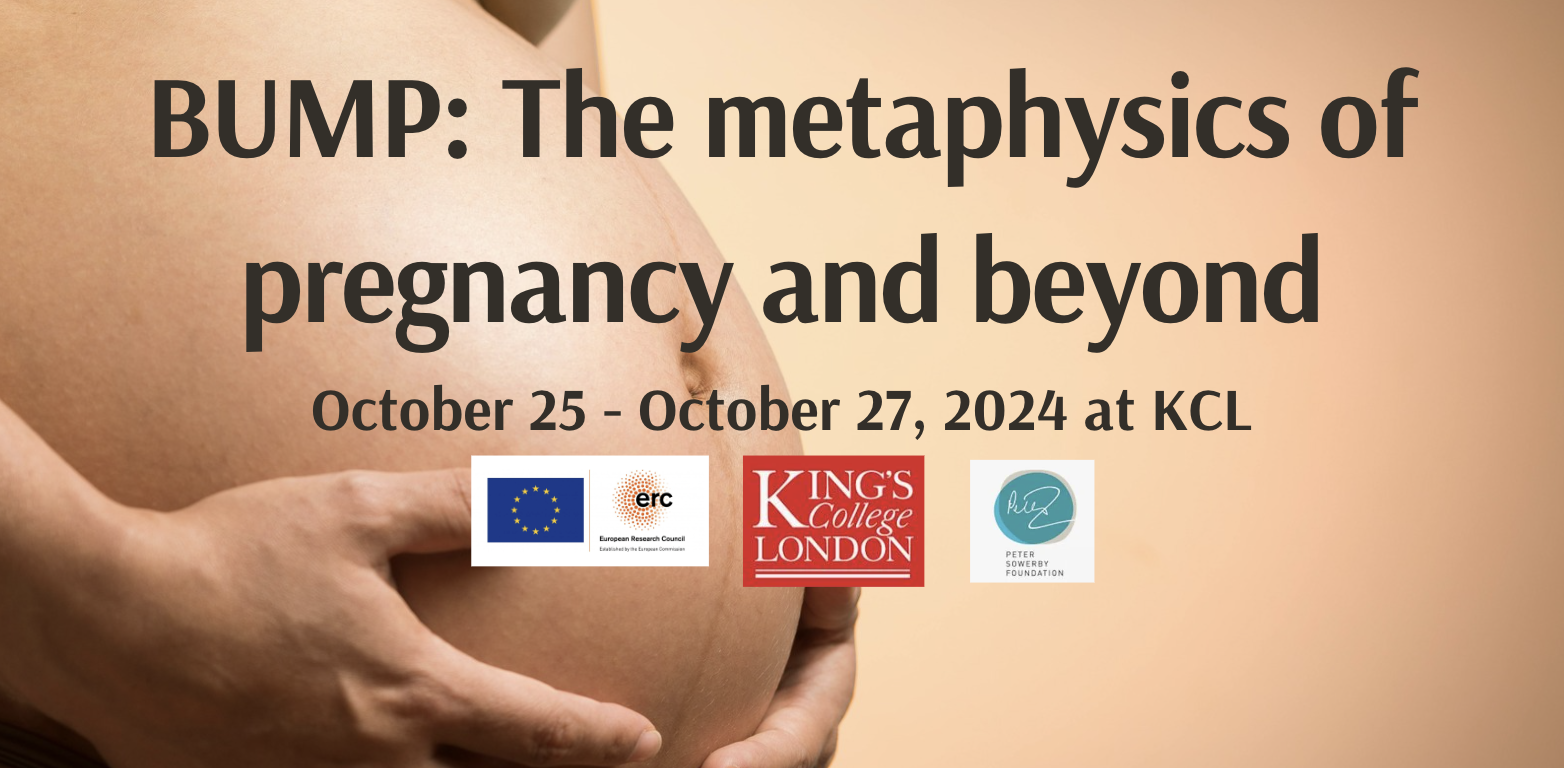
BUMP: The metaphysics of pregnancy and beyond
The European Research Council funded project ‘Better Understanding the Metaphysics of Pregnancy’ (BUMP) is delighted to invite submissions for a conference to be held at King’s College London from Friday 25th to Sunday 27th of October 2024.
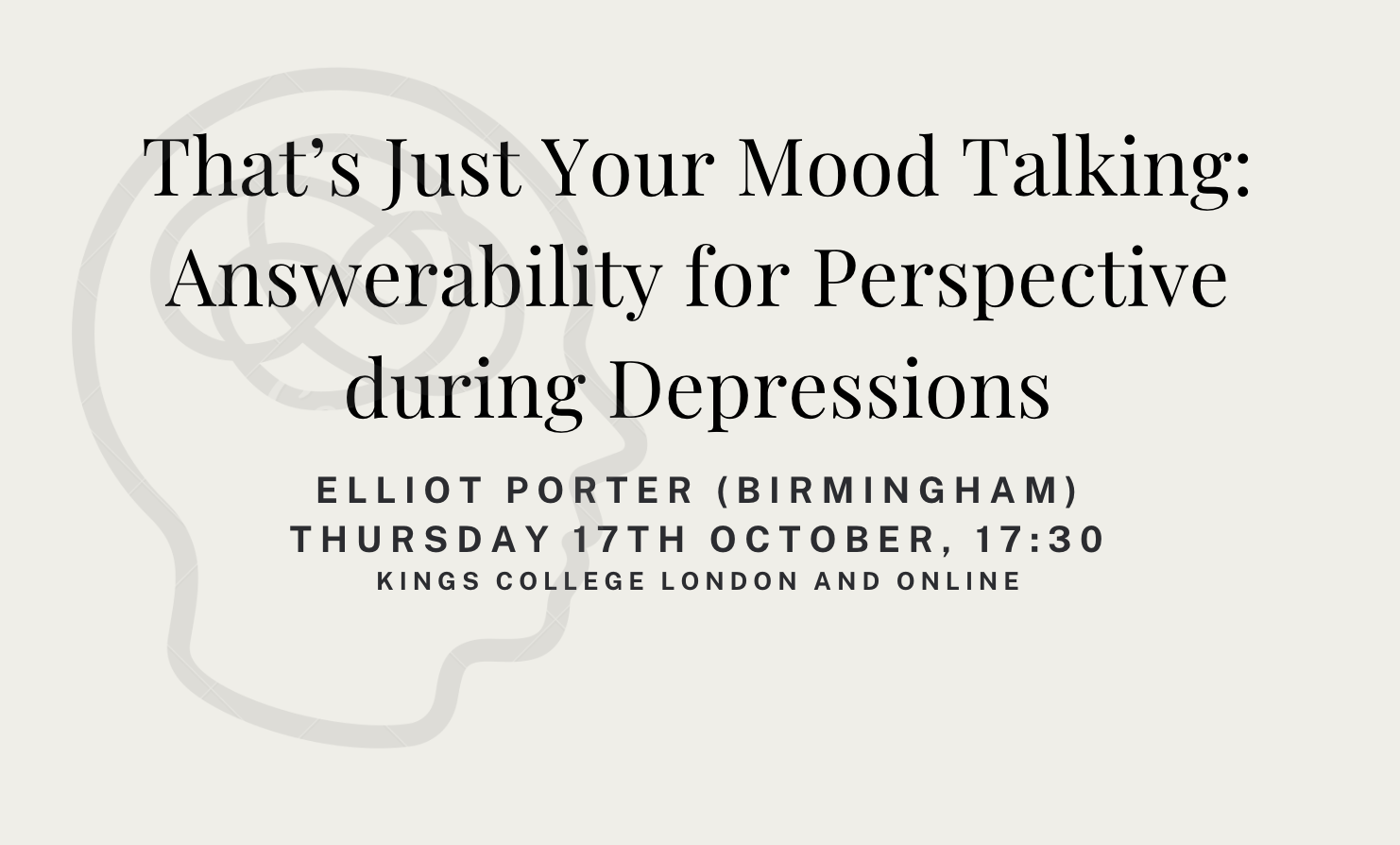
Elliot Porter: That’s Just Your Mood Talking: Answerability for Perspective during Depressions
This event is part of our ongoing series "Witnessing Mental Illness Through Philosophy"

Prof. Nahyan Fancy "What kind of ‘ilm is medicine?"
Join the Sowerby Philosophy & Medicine project for our first colloquium in our series 'Ancient Philosophy of Medicine'. On the May 13th, Professor Nahyan Fancy will join us from The University of Exeter to speak on “What kind of ‘ilm is medicine? Reflections of the Canon and Epitome Commentators on Avicenna’s Definition of Medicine and its Implications”. The talk can be attended in person in London ( Kings Building K-1.14, Strand Campus) or online on Zoom (link will be sent on the day of the event).
Abstract: Ibn Sīnā begins the Canon of Medicine by defining medicine as “a science (ʿilm) through which one knows (yataʿarraf minhu) the states of the human body from the perspective of what makes [the body] healthy and [what] makes it leave [the state] of health.” In the course of this opening discussion he also stresses that all of medicine is a theoretical science, including its practical parts. Yet, later in the same lesson, Ibn Sīnā maintains that for some medical matters the physician qua physician may only conceptualize them (taṣawwur) without passing judgment (taṣdīq) on whether they exist. The physician qua physician should accept such judgments from the scholar of natural science (al-ʿilm al-ṭabīʿī). Dimitri Gutas, in his oft-cited chapter from 2003, cited this latter passage as a reason for why physicians in Islamic societies were unable to critique or overthrow Galenic humoral theory since it was deemed off-limits to them. In this presentation, I shall examine the discussions of four Canon commentators and four Epitome commentators on the definition of medicine and what types of investigations fell under the purview of those engaged in medicine (whether as practicing physicians, teachers, or commentators on medical works). We shall see that the thirteenth century commentators had already come to understand the Avicennan definition and passage on what is permissible for physicians qua physicians in a way that did not limit their investigations into medical theory. We will see how this led them to revise humoral theory and even engage in debates over the connection of the soul to the body, and its implications for the number and role of chief organs.
You can register here.
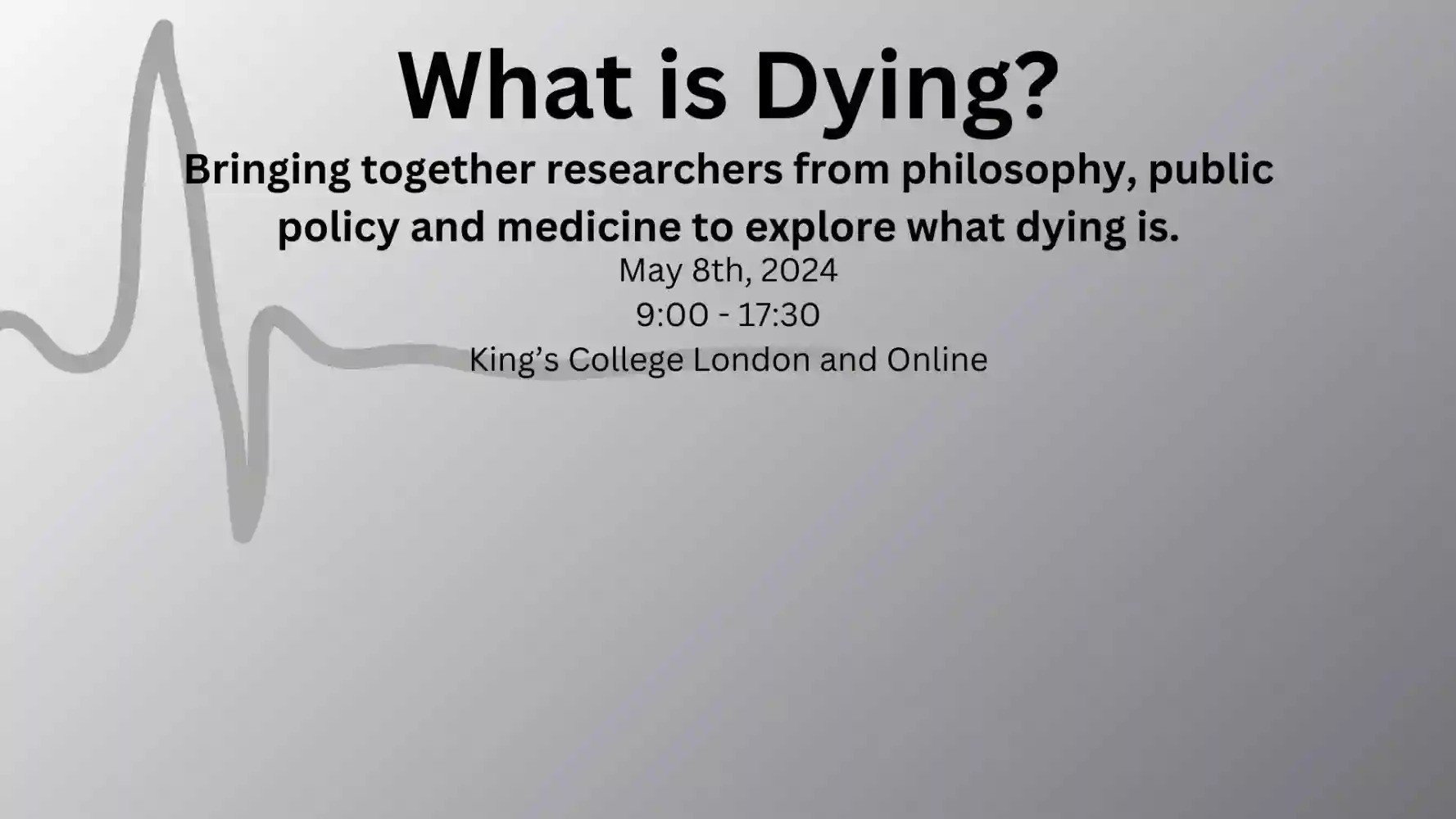
Sowerby Workshop: What is dying?
The Sowerby Philosophy & Medicine Project are delighted to invite you to a one-day workshop on May 8th, 9:00 - 17:30 at King's College London on "What is Dying?". This interdisciplinary workshop aims to bring together researchers from philosophy, public policy and medicine to explore the question “what is dying?”. The hope is to clarify the question and highlight the urgent need for an answer. This is the start of a cross-disciplinary conversation which should hopefully stimulate discussion and work on a much neglected topic.
Speakers:
Dr Christina Chu, Clinical Research Training Fellow, University College London, Marie Curie Palliative Care Research Department
Dr Paul Taylor, Consultant in Palliative Medicine and St Luke’s Senior Clinical Lecturer in Palliative Medicine at the University of Sheffield
Dr Guy Schofield, Consultant in Palliative Medicine and Honorary Senior Clinical Lecturer at Imperial College London
Professor Michael Hauskeller, Professor of Philosophy at the University of Liverpool
Professor Havi Carel, Professor of Philosophy at the University of Bristol
Professor Steven Luper, Professor of Philosophy at Trinity University, Texas
Schedule
0900 - 0920: Coffee and registration
0920 - 0930: Arjun Devanesan - Introduction and aims for the day
0930 - 1020: Dr Christina Chu - title TBC
1030 - 1120: Dr Paul Taylor - title TBC
1120 -1140: Coffee break
1140 - 1230: Prof Michael Hauskeller: dying as process and experience
1230 - 1330: Lunch
1330 - 1420: Dr Guy Schofield - title TBC
1430 - 1520: Prof Havi Carel - title TBC
1530 - 1620: Prof Steven Luper - title TBC
1620 - 1640: Coffee break
1640 - 1730: Panel discussion
You can register here.
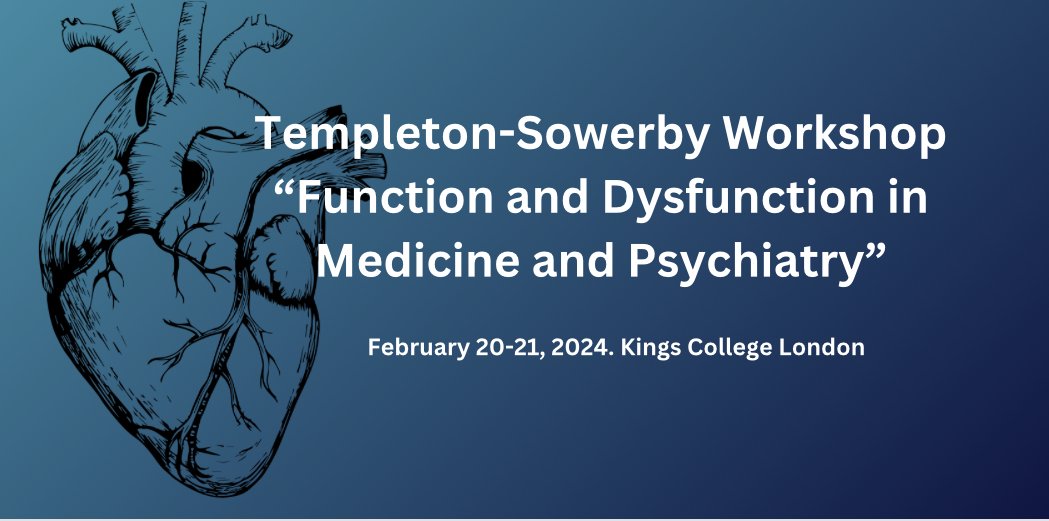
Templeton-Sowerby Workshop "Function and Dysfunction in Medicine and Psychiatry"
The KCL Sowerby Philosophy & Medicine Project and members of the CUNY philosohy faculty, kindly sonsored by the Templeton Foundation, are excited to invite attendees to our joint workshop on Function and Dysfunction in Medicine and Psychiatry.
The two-day workshop can be attended in person at King's College London, or online on Zoom. Please find the workshop programme and details of registration here.

CfA deadline
The deadline for submitting abstracts for the Templeton-Sowerby Joint Workshop: Function and Dysfunction in Medicine and Psychiatry!
Find out more about the Call for Abstracts here.

Prospects and Challenges for a Global State Model of Depression
On Thursday 11th of May at 5pm GMT, join us to hear Cecily Whiteley speak on ‘Prospects and Challenges for a Global State Model of Depression’!

Health and disease as practical concepts: a pragmatist approach
On Thursday 4th of May at 5PM GMT, come hear Nicholas Binney and Rik van der Linden give a talk ‘Health and disease as practical concepts: a pragmatist approach’!

Christopher Boorse: 'New Replies to Critics'
We are very pleased to announce this second colloquium in our series ‘New Work on the Concepts of Health and Disease’. Register and find out more here.


4th Interdisciplinary Workshop: The Puzzle of Addiction
We are very excited to invite attendees to our 4th Interdisciplinary Workshop, which this year will focus on the puzzle of addiction and other aspects of Hanna Pickard’s work.

Robert Chapman: ‘Towards a Democratic Approach to Health Concepts’
We are very excited to announce this first colloquium in our new series called ‘New Work on the Concepts of Health and Disease’. Find out more and register here.

Jonathan Pugh - 'Deep brain stimulation, neuroethics, and the revision of the Mental Health Act'
Join us for the final event in our series on Philosophy and the Mental Health Act!

'Subjectivism vs paternalism, the Scylla and Charybdis of mental healthcare' - Professor Tim Thornton
Join us for the next colloquium in our series on Philosophy and the Mental Health Act.

Communication in Youth Mental Health Clinical Encounters: An Agential Stand
We are very pleased to welcome attendees to the second colloquium in our series on Philosophy and the Mental Health Act.
In this event, Professor Lisa Bortolotti from University of Birmingham and Clara Bergen from City University of London School of Health Sciences will be speaking on the topic of 'Communication in youth mental health clinical encounters: Introducing the agential stance'.
This will be a hybrid event, with an option to either attend in person in Bush House or online via Zoom.

Philosophy and the Mental Health Act - Panel Discussion
We are very pleased to invite attendees to the first event in our colloquium series on Philosophy and the Mental Health Act!
Our fantastic panellists are Professor Sir Simon Wessely, Professor Judy Laing, and Dr Gareth Owen. Find out more here.
This colloquium is a part of a wider series on Philosophy and the Mental Health Act. Find out more about the series here.
2021 Sowerby Annual Lecture
The 2021 Annual Sowerby Lecture will be given at 6.30pm on the 2nd of November by Professor Neil Ferguson (Imperial), leading epidemiologist and scientific adviser whose modelling and advice significantly influenced the U.K.’s Covid-19 response.
3rd Peter Sowerby Interdisciplinary Workshop
We are very pleased to invite attendees to the 3rd Peter Sowerby Interdisciplinary Workshop. This year’s theme is ‘Policy and intervention in crises, disasters and emergencies: Covid-19 and beyond.’
Law, Medical Power, and Minorities
We are very pleased to invite attendees to our first in person colloquium in a long time! (There will be an option to attend online, too.)
Professor Craig Konnoth from UVA will be speaking on ‘Law, Medical Power, and Minorities’.

'"Blood Bans: A Case Study of Defenses of Stereotyping in Medical Contexts'
This talk by Professor Rima Basu is the eight and final colloquium in our Summer Series in Stereotyping and Medical AI.

‘Enabling Fairness in Healthcare Through Machine Learning’ - Dr Geoff Keeling
This colloquium is organised as part of the Summer Series in Stereotyping and Medical AI.

'Algorithmic Fairness and Resentment' with Profs. Zoë Johnson King and Boris Babic
We are very pleased to announce our sixth colloquium in this series of colloquia on Stereotyping & Medical AI, which is co-organised by Minorities and Philosophy (MAP) and the Sowerby Philosophy & Medicine Project.
Professor Zoë Johnson King is an Assistant Professor in the Philosophy Department at USC. Her research specialties are in Ethics, Metaethics, Epistemology, Decision Theory, and Philosophy of Law. She mainly works on non-ideal moral psychology thinking about motivation and creditworthiness for squishy messy humans in an unjust world. She is also currently leading an anti-racism discussion group for members of November Project Brooklyn and November Project New York.
Professor Boris Babic has a joint appointment in the Department of Philosophy and the Department of Statistics at the University of Toronto. Previously, he was an assistant professor in the Decision Sciences Department at INSEAD and a postdoctoral fellow at the California Institute of Technology. His research specialities are in Artificial Intelligence and Machine Learning, Decision Theory, and Epistemology. And he is primarily interested in questions in Bayesian inference and decision-making, and normative questions in the implementation of artificial intelligence and machine learning.

Special Legal-Themed Panel Discussion on Stereotyping & Medical AI
This event is the 5th colloquium in our Summer Colloquium Series on Stereotyping and Medical AI.
Our panellists:
Dr. Jonathan Gingerich (KCL), Lecturer in the Philosophy of Law at the Yeoh Tiong Lay Centre for Politics, Philosophy & Law
Dr. Reuben Binns (Oxford), Associate Professor of Human Centred Computing
Prof. Georgi Gardiner (Tennessee), Associate Professor of Philosophy
Prof. David Papineau (KCL), Professor of Philosophy of Science

'Neural Networks and Explanatory Opacity' - Dr. Will McNeill
The 4th colloquium in our Summer Series on Stereotyping and Medical AI.
Dr. McNeill is a Lecturer in Philosophy at Southampton, working in the philosophy of mind, artificial intelligence, the sciences and epistemology. His current research concerns the nature and epistemological role of perception – both natural and artificial. In particular, he is interested in what artificial neural networks can tell us about natural cognitive processes and their epistemological role, and how we can provide a good model of the role of perceptual experience in securing knowledge of our environment.

Dr Annette Zimmermann - 3rd Colloquium in the Summer Series on Stereotyping and Medical AI
The Sowerby Philosophy and Medicine Project invites attendees to the 3rd colloquium in our Summer Colloquium Series on 'Stereotyping and Medical AI'.
